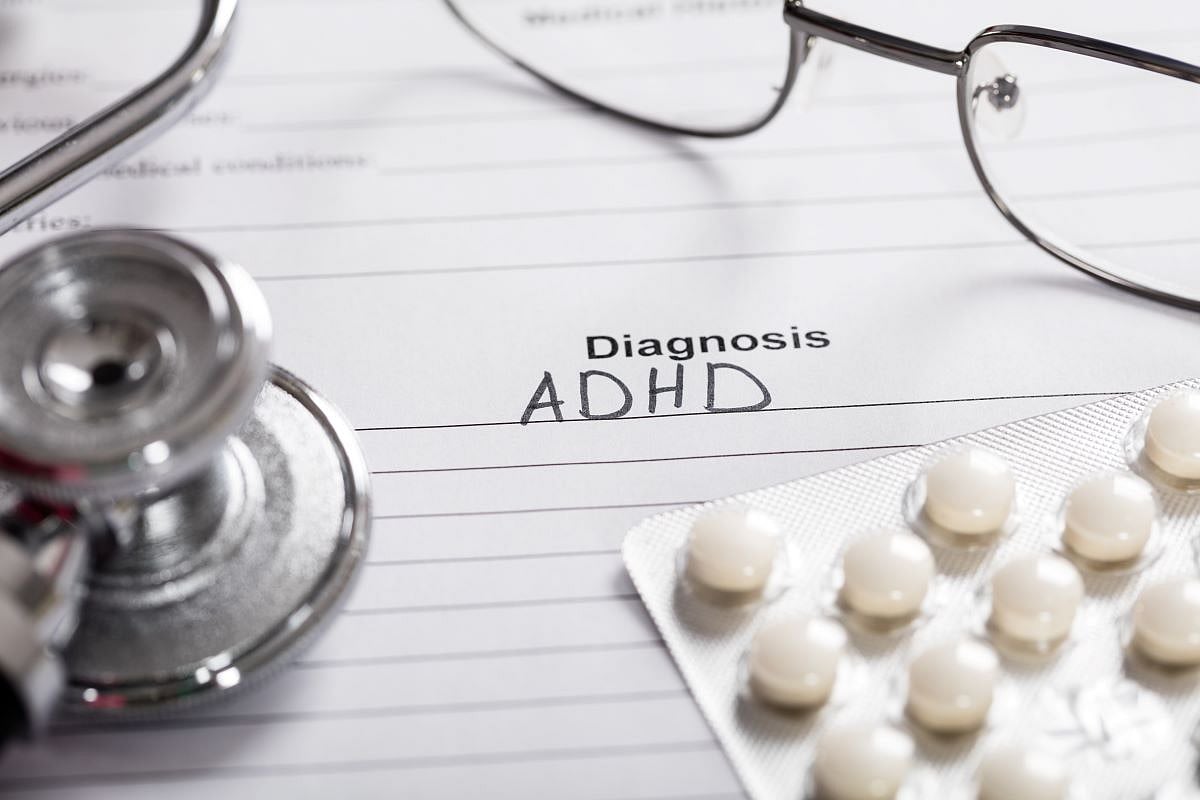Get Healthy!
Staying informed is also a great way to stay healthy. Keep up-to-date with all the latest health news here.
04 Mar
Younger Adults Face Growing Threat From Colon and Rectal Cancer
A new report from the American Cancer Society finds colorectal cancer is increasingly affecting younger adults. The analysis also highlights rising rectal cancer cases, late diagnoses in people under 50, and ongoing gaps in screening.
03 Mar
New Global Analysis Warns of Sharp Rise in Breast Cancer Cases
The number of new breast cancer cases worldwide is predicted to surpass 3.5 million by 2050. But researchers say targeting six lifestyle risk factors could help change the trajectory.
02 Mar
Are Gut Microbiome Kits Overpromising?
The American Gut Project tests 21 at-home gut microbiome kits from seven companies and finds “major discrepancies.”
Review of U.S. Measles Elimination Status Delayed Until November
An expected review of the United States’ measles elimination status has been postponed by seven months.
The meeting, originally scheduled for mid-April, will now take place in November, according to the Pan American Health Organization (PAHO), a regional branch of the World Health Organization.
Measles has been considered elimi...
- HealthDay Staff HealthDay Reporter
- |
- March 4, 2026
- |
- Full Page
Your Furry Roommate May Be Affecting The Air You Breathe
Dogs may bring more than companionship into a home: They can also affect the air we breathe indoors, a new study shows.
Researchers found that dogs release airborne particles, gases and microbes that can affect indoor air quality. In some cases, the levels were similar to, and sometimes higher than, what humans release.
The findings ...
- HealthDay Staff HealthDay Reporter
- |
- March 4, 2026
- |
- Full Page
About 81,000 Baby Monitors Recalled Over Possible Fire Risk
Parents who use baby monitors may want to take a closer look at the one they have at home.
The U.S. Consumer Product Safety Commission (CPSC) has announced a recall of about 81,000 babysense Max View Baby Monitors because the display unit can overheat and create a possible fire hazard.
The monitors are made by Hisense, which has rece...
- HealthDay Staff HealthDay Reporter
- |
- March 4, 2026
- |
- Full Page
Two Days of Oatmeal May Lower Cholesterol, Study Finds
Whether topped with fruit or flavored with peanut butter, eating mostly oatmeal for just two days may help lower cholesterol, according to a new study out of Germany.
In the trial, people with metabolic syndrome who followed a strict oat-based plan for 48 hours saw a 10% drop in harmful LDL cholesterol.
The improvement was still noti...
- HealthDay Staff HealthDay Reporter
- |
- March 4, 2026
- |
- Full Page
Early Sports Specialization Linked To Increased Injury Risk
Parents of athletic children can protect them from injury by encouraging them to try out a wide variety of sports, a new study says.
Repetitive stress from focusing on one sport at a young age increases an athlete’s risk of injuries into adulthood, according to a pair of new studies presented this week at the American Academy of Orth...
- Dennis Thompson HealthDay Reporter
- |
- March 4, 2026
- |
- Full Page
More Kids, Teens Injured In E-Bike Wrecks, Study Finds
Electronic bikes, also referred to as e-bikes, are zooming in popularity, but they’re also responsible for more kids landing in an ER with injuries, a new study says.
E-bike injuries have more than tripled in San Diego in recent years, researchers reported Monday at a meeting of the American Academy of Orthopaedic Surgeons (AAOS) in ...
- Dennis Thompson HealthDay Reporter
- |
- March 4, 2026
- |
- Full Page
Exercise Boosts Quality of Life During Breast Cancer Chemotherapy
Extreme fatigue, muscle loss and psychological stress are well-known side effects of the chemotherapy that saves the lives of breast-cancer patients.
But should patients exercise during active phases of their treatment?
A new study provides additional evidence that movement may be one of the best ways to combat these challenges...
- Deanna Neff HealthDay Reporter
- |
- March 4, 2026
- |
- Full Page
Colorectal Cancer Rates Shifting to Younger Groups as Rectal Cancer Rates Spike
Colon cancer, long considered a disease of the elderly, is increasingly striking younger Americans, according to a startling new report.
Nearly half of new colon cancer diagnoses — about 45% — now occur in people under 65, according to the report from the American Cancer Society (ACS).
This is a massive jump from 1995, wh...
- Deanna Neff HealthDay Reporter
- |
- March 4, 2026
- |
- Full Page
Lithium Might Slow Brain Decline Among Seniors, Pilot Study Shows
The mood disorder drug lithium might have brain benefits beyond simply warding off depression and anxiety, a new study says.
A pilot clinical trial has found that low-dose lithium tablets might help slow verbal decline among seniors with mild cognitive impairment, researchers reported March 2 in JAMA Neurology.
Seniors takin...
- Dennis Thompson HealthDay Reporter
- |
- March 4, 2026
- |
- Full Page
Brain Chemical Provides A 'Pep In Your Step,' Experiment Shows
Have you ever found a “spring in your step” when you’re walking toward something you enjoy – a favorite food, a good friend, an entertaining activity?
That’s a dopamine surge hitting your brain, a new study says.
Dopamine – a brain chemical associated with reward – appears to prompt people to...
- Dennis Thompson HealthDay Reporter
- |
- March 4, 2026
- |
- Full Page
AI Therapist? It Falls Short, a New Study Warns
More people are asking artificial intelligence (AI) chatbots for help with daily problems, from work stress to relationship worries and more.
Now, a new study warns that when it comes to mental health advice, these systems may fall short.
A team at Brown University in Providence, Rhode Island, found that even when AI syst...
- HealthDay Staff HealthDay Reporter
- |
- March 3, 2026
- |
- Full Page
BBQ Sauce Recall Issued Nationwide Due To Incorrect Label
Savannah Bee Company is recalling a batch of its Honey BBQ Sauce-Mustard after discovering the product may contain undeclared wheat and soy, two common allergens.
The sauce is sold in a 16-fluid-ounce clear glass bottle with an orange label. It carries the lot number B1L1360525, a best-before date of 05/16/27, and UPC 8 50033 93758 9, the ...
- HealthDay Staff HealthDay Reporter
- |
- March 3, 2026
- |
- Full Page
Nearly 20 States Scale Back HIV Medication Programs
A growing number of states are rolling back financial help for HIV medications.
An analysis released March 2 by the health research group KFF found that 18 states have adopted cost-cutting changes to their AIDS Drug Assistance Programs, known as ADAPs.
Five more states are considering similar steps.
ADAP programs are fund...
- HealthDay Staff HealthDay Reporter
- |
- March 3, 2026
- |
- Full Page
FDA Recalls More Than 651,000 Jugs of Water Over Sanitation Concerns
More than 651,000 large bottles of water are being pulled from store shelves after health officials flagged sanitation issues.
The U.S. Food and Drug Administration (FDA) says 651,148 bottles of water are under recall because of what it described as “insanitary conditions.”
The agency did not provide exact details.
...
- HealthDay Staff HealthDay Reporter
- |
- March 3, 2026
- |
- Full Page
How to Get Ready For Daylight Saving Time
You love it — or loathe it.
Either way, the clocks jump forward one hour Sunday morning for the start of Daylight Saving Time, providing an extra hour of evening light through Nov. 1. That means one hour less sleep this weekend.
Resetting your body’s internal clock for these seasonal changes can be challenging for f...
- Carole Tanzer Miller HealthDay Reporter
- |
- March 3, 2026
- |
- Full Page
A-Fib Drug Could Interact With Blood Thinners, Increase Risk Of Dangerous Bleeding
People with abnormal heart rhythms could be at risk of dangerous bleeding from a serious combination of prescription medications, a new study says.
Patients with atrial fibrillation (A-Fib) often are prescribed diltiazem to help control their heart rate, researchers said in the Annals of Internal Medicine.
Because A-Fib also...
- Dennis Thompson HealthDay Reporter
- |
- March 3, 2026
- |
- Full Page
Collagen Supplements Good For Skin, Arthritis, Evidence Review Concludes
Collagen supplements have some legitimate benefits, improving skin health and reducing pain from wear-and-tear arthritis, a new evidence review has concluded.
Skin elasticity and hydration improve while taking collagen supplements, and arthritis pain and stiffness eases, researchers reported in the Aesthetic Surgery Journal Open Forum<...
- Dennis Thompson HealthDay Reporter
- |
- March 3, 2026
- |
- Full Page
Effective Sunscreen Protection Can Cost $40 A Year
Protecting yourself against skin cancer can cost as little as $40 a year, a new study says.
Sunscreens with a sun protective factor of 50 can be purchased as for as little as 4 cents an application, researchers recently reported in JAMA Dermatology.
On the other hand, more expensive versions can cost 17 times as much –...
- Dennis Thompson HealthDay Reporter
- |
- March 3, 2026
- |
- Full Page
Illicit Adderall Use Places Stress On The Heart, Study Shows
College students using the ADHD drug Adderall as a study aid could be harming their heart health, a new Mayo Clinic study warns.
A single 25-milligram dose of Adderall can cause a person’s heart rate and blood pressure to surge if they’re not used to taking the medication regularly, researchers found.
"The average heart r...
- Dennis Thompson HealthDay Reporter
- |
- March 3, 2026
- |
- Full Page
Breast Cancer Cases, Deaths Expected To Rise Worldwide
Breast cancer deaths are expected to continue rising over the next decade and a half, driven in part by unhealthy lifestyle choices, a new study says.
Worldwide, breast cancer deaths are projected to increase by 44%, rising to nearly 1.4 million by 2050 from 764,000 in 2023, researchers recently reported in The Lancet Oncology.
- Dennis Thompson HealthDay Reporter
- |
- March 3, 2026
- |
- Full Page













.jpg?w=1920&h=1080&mode=crop&crop=focalpoint)






